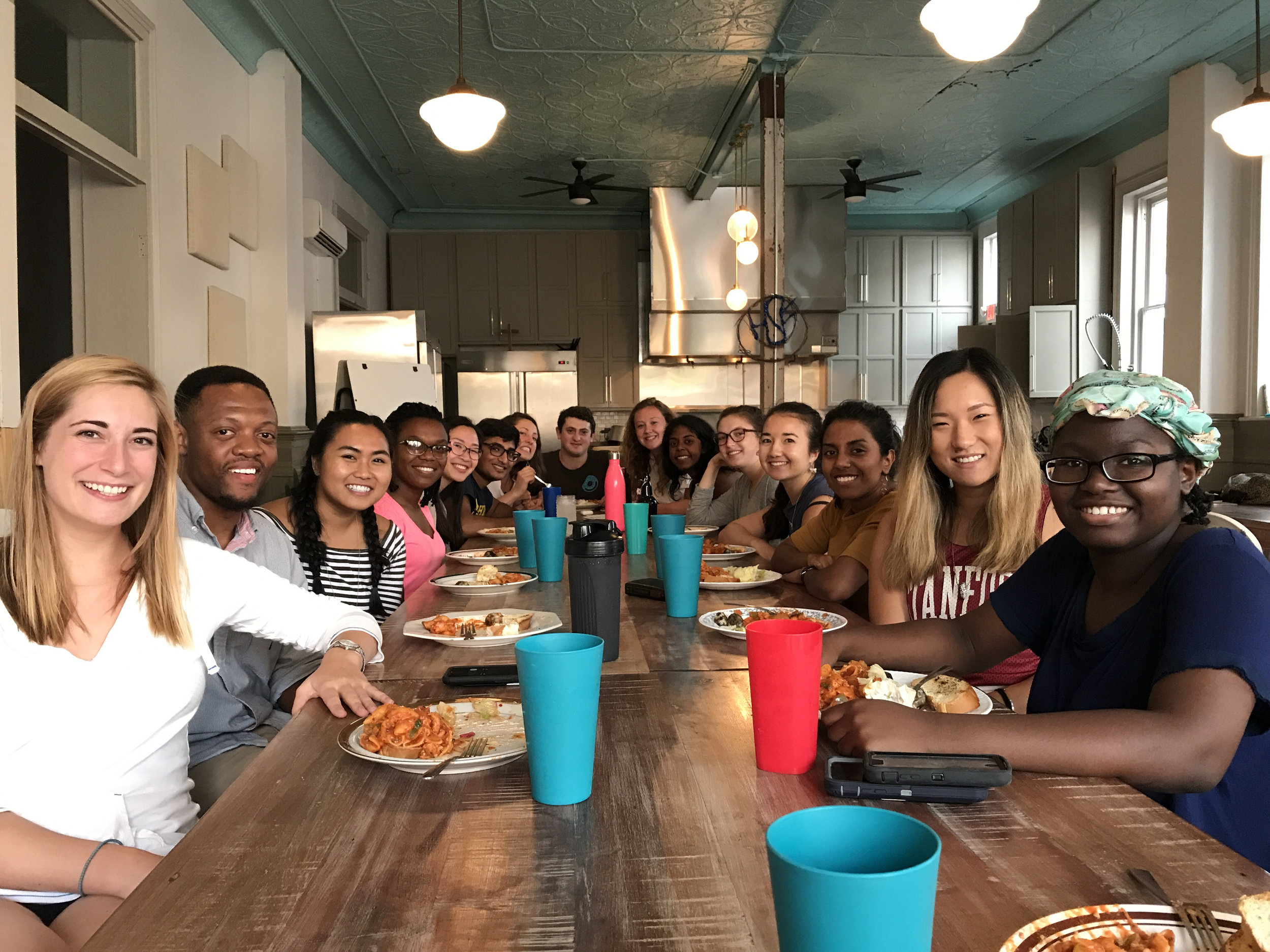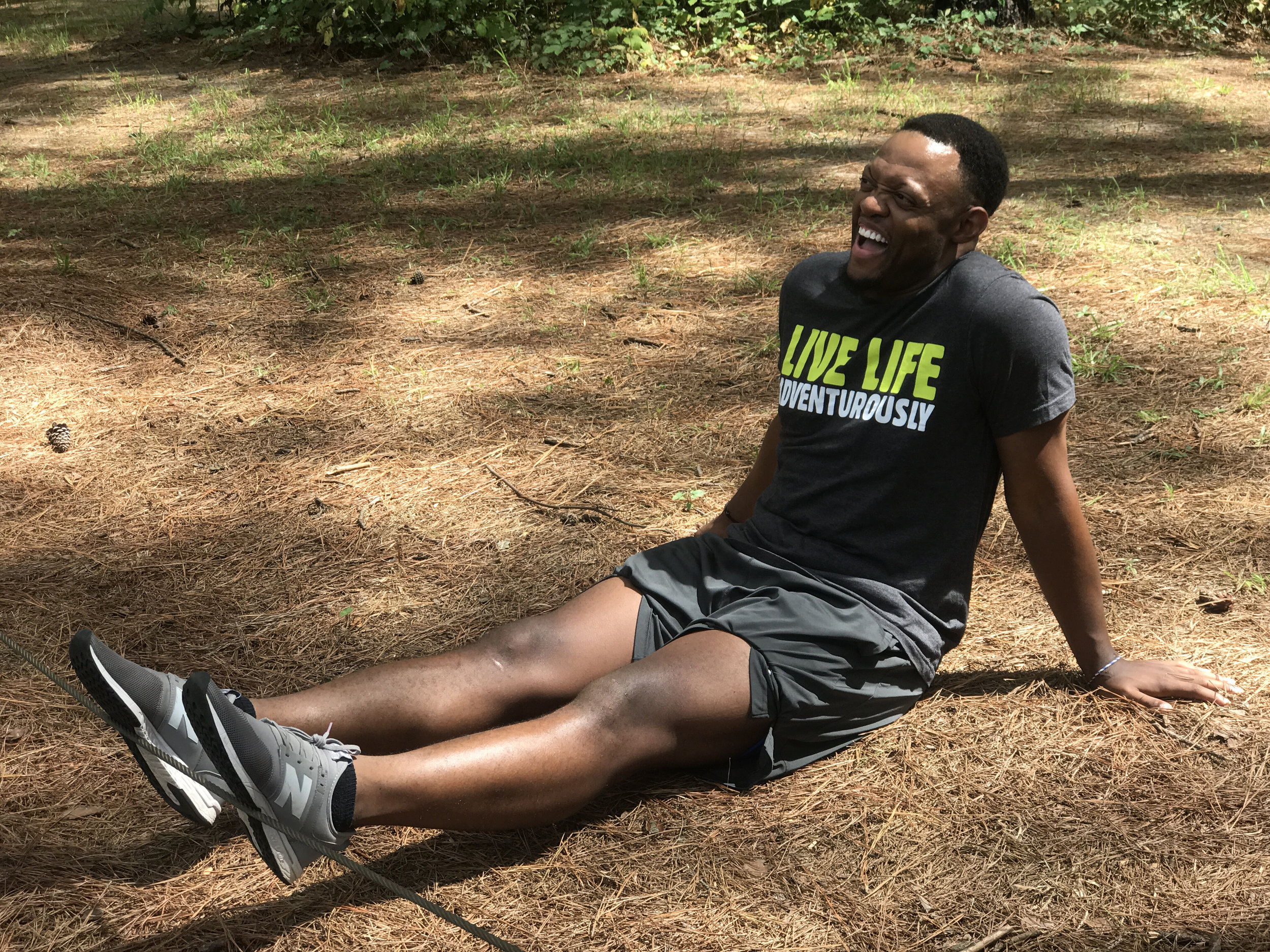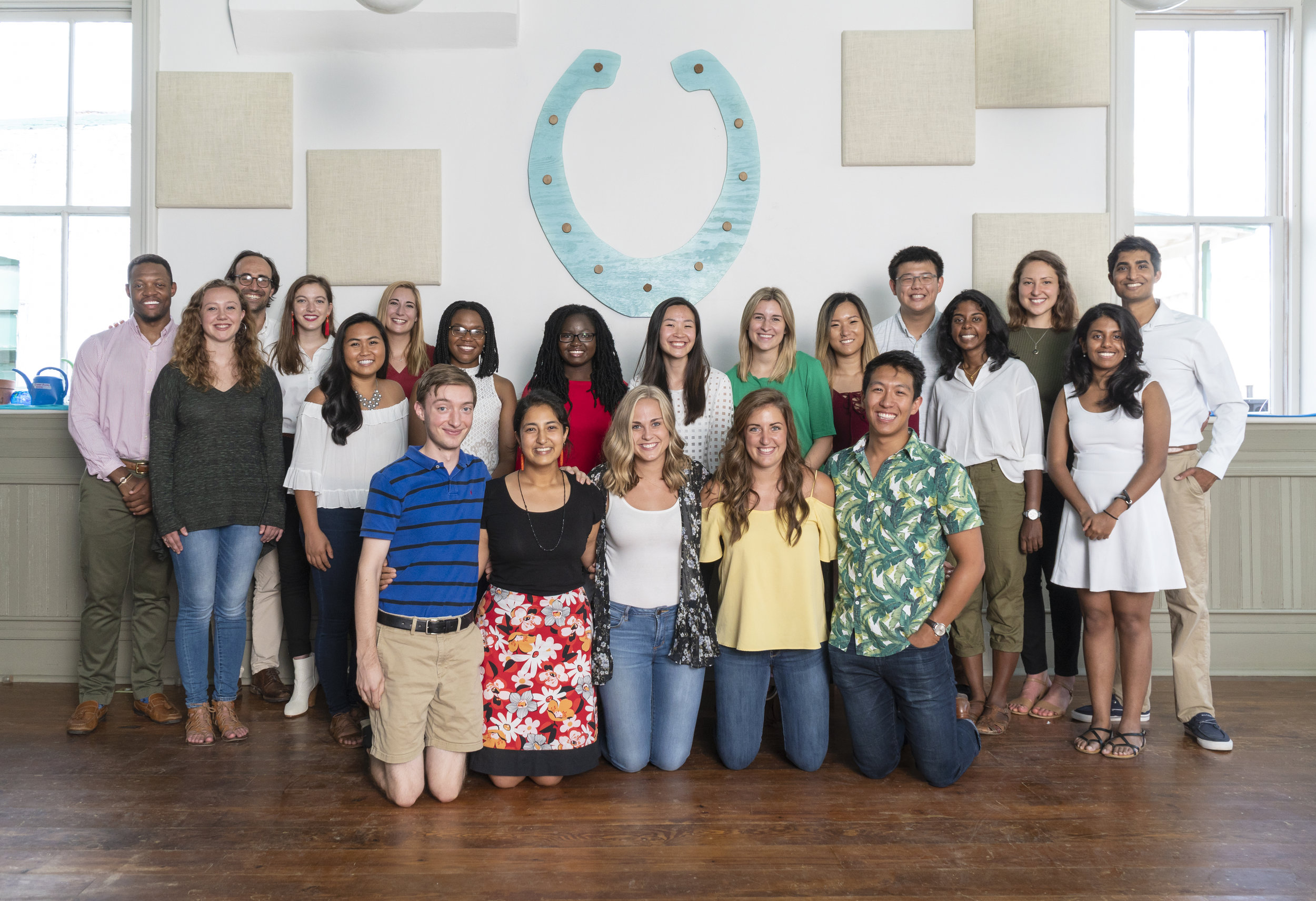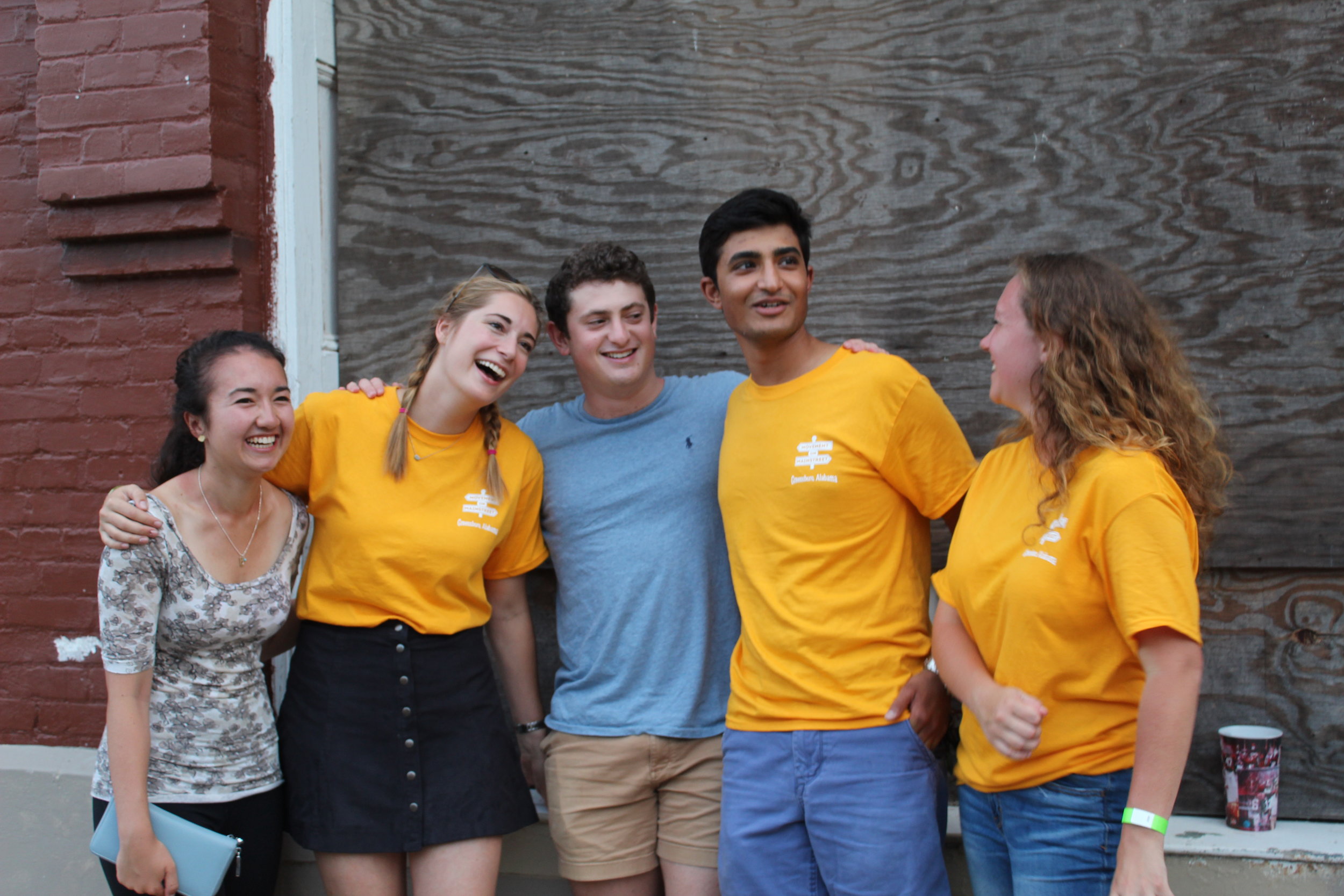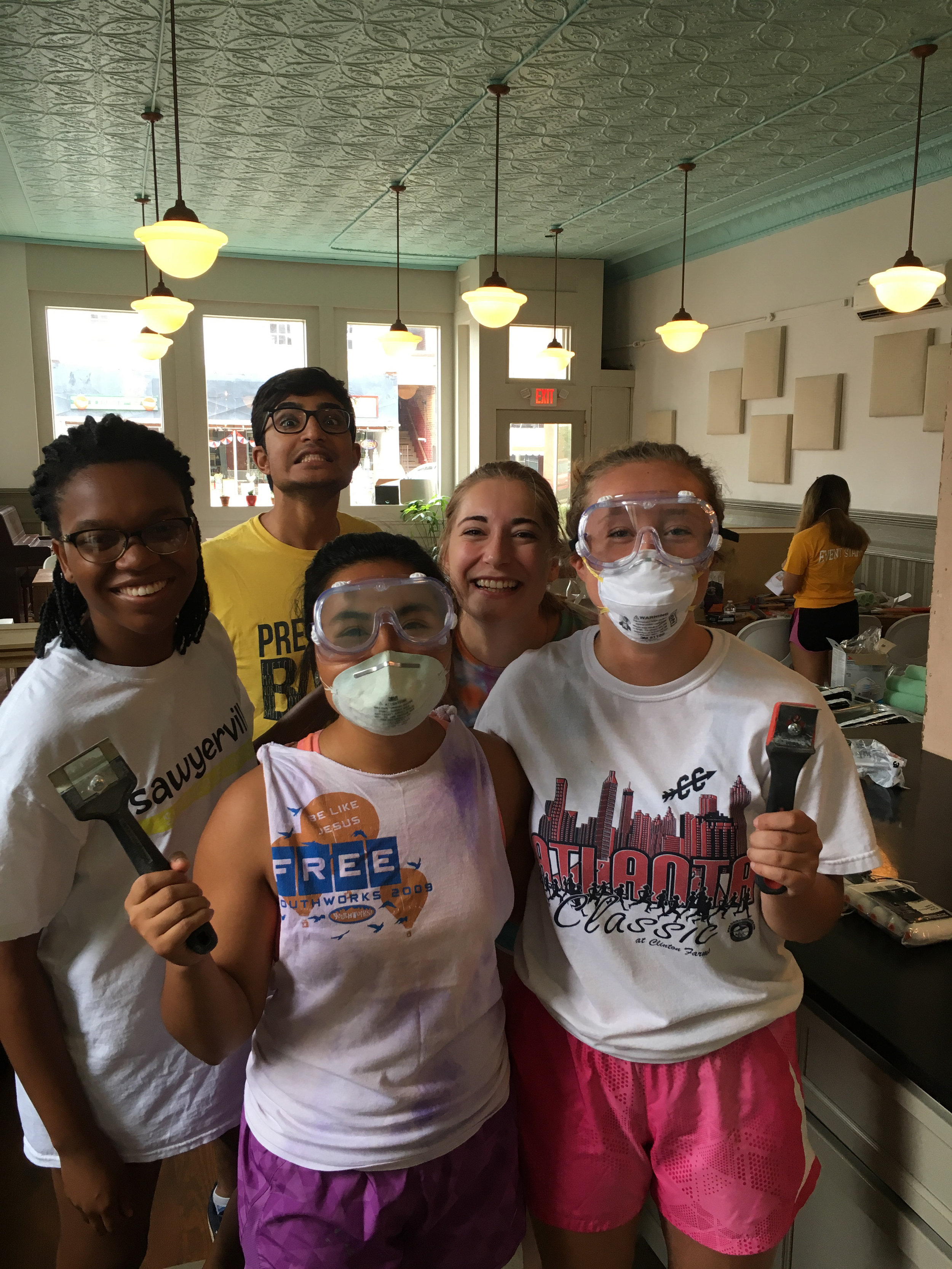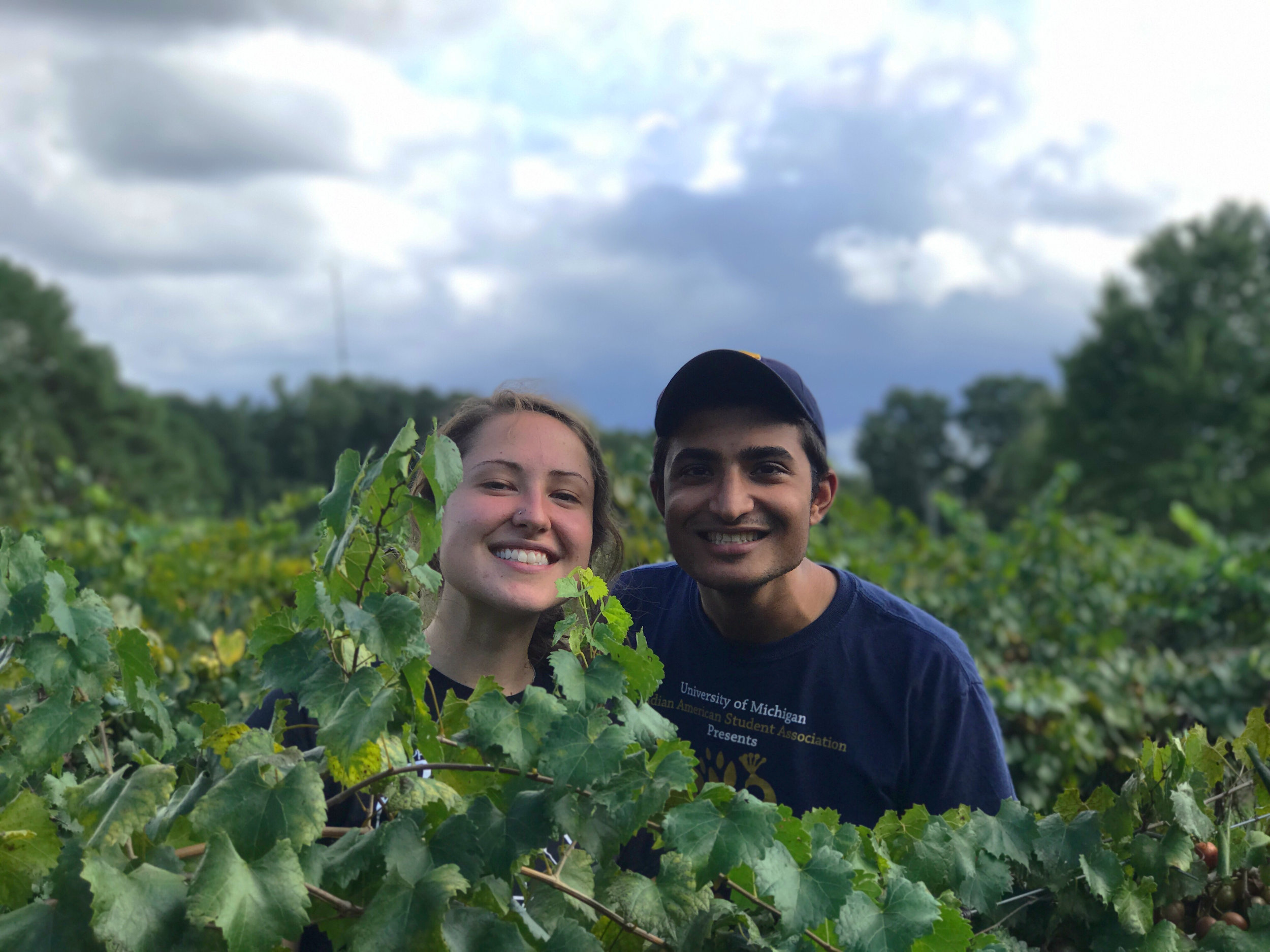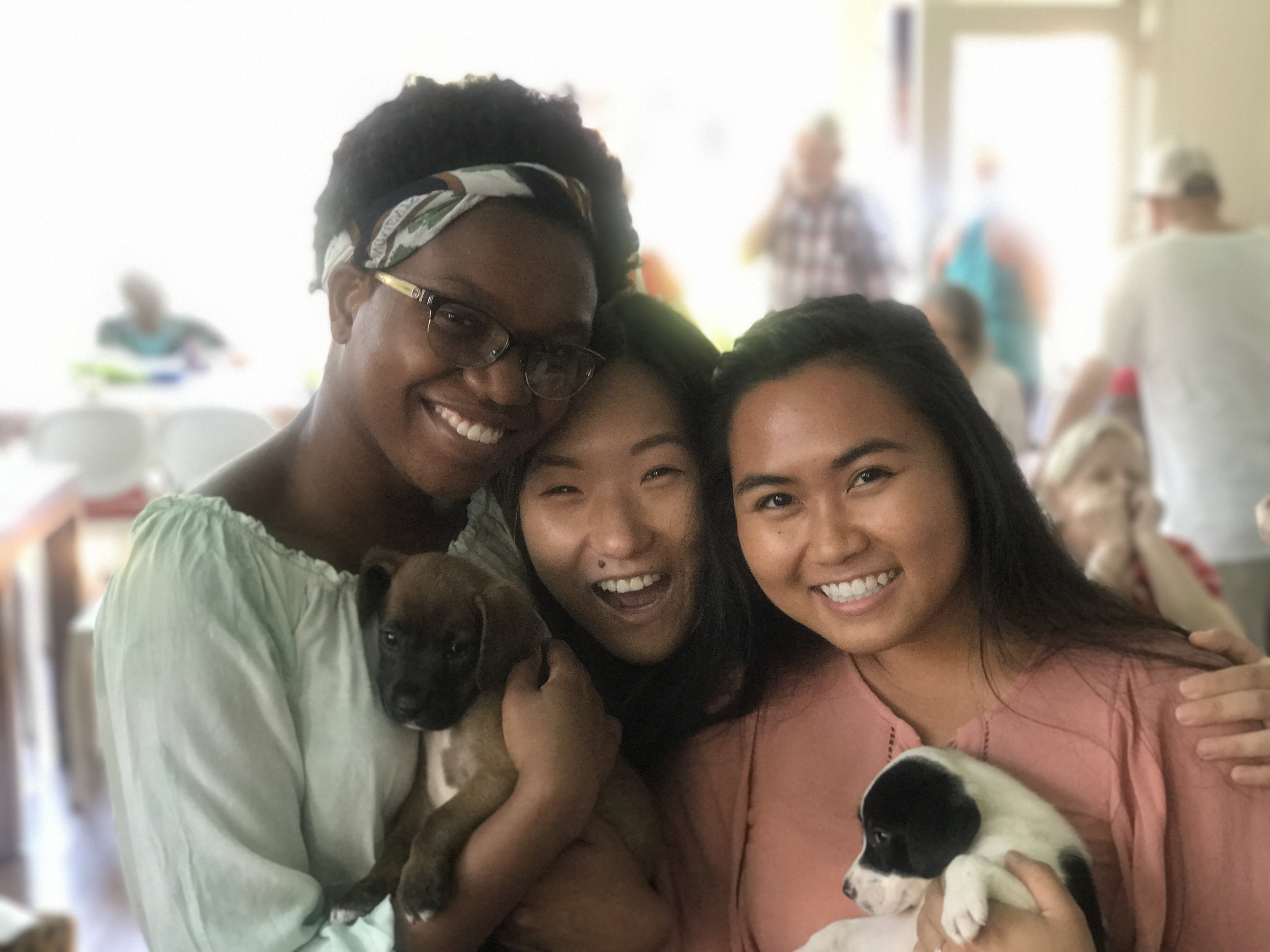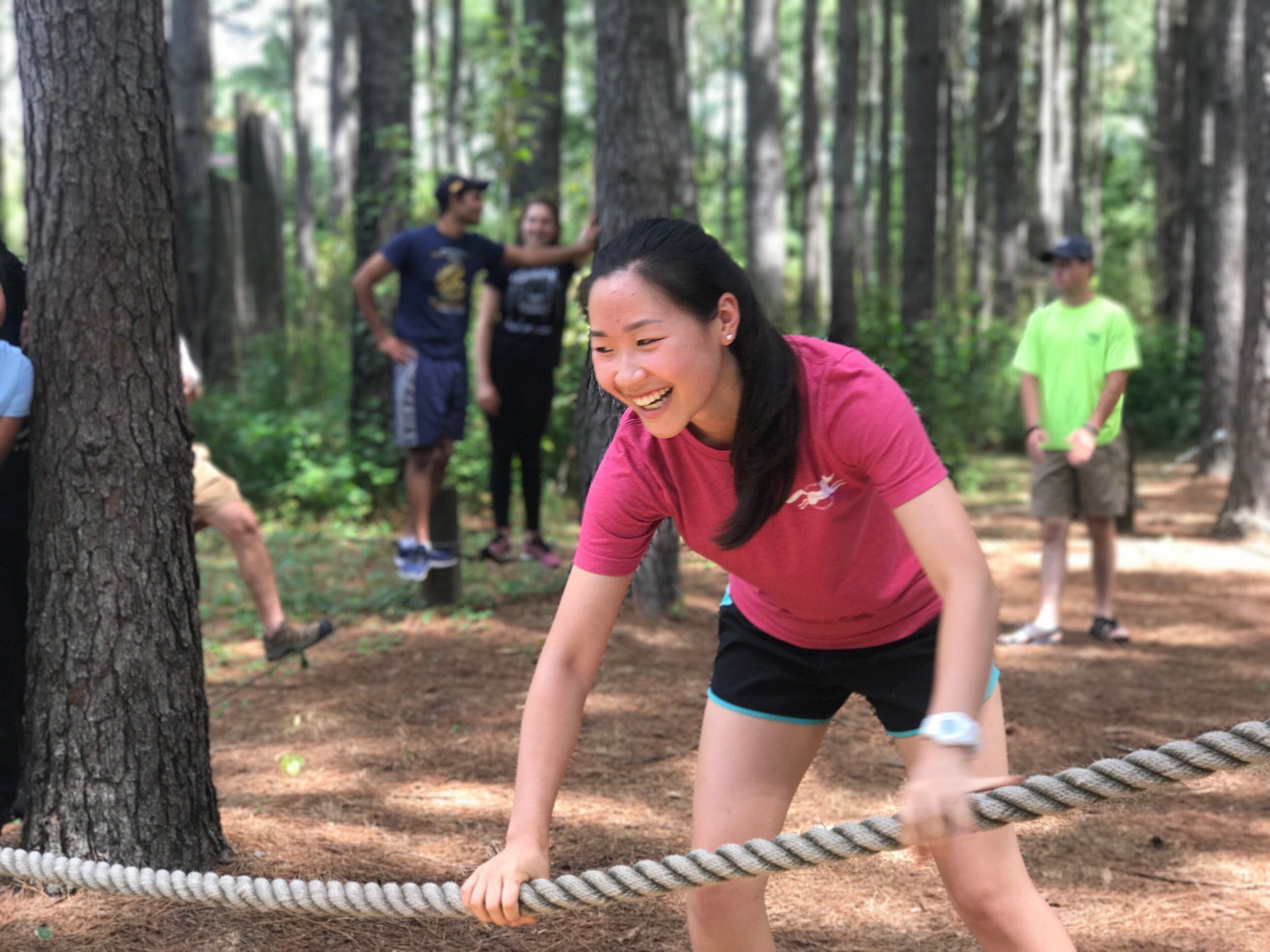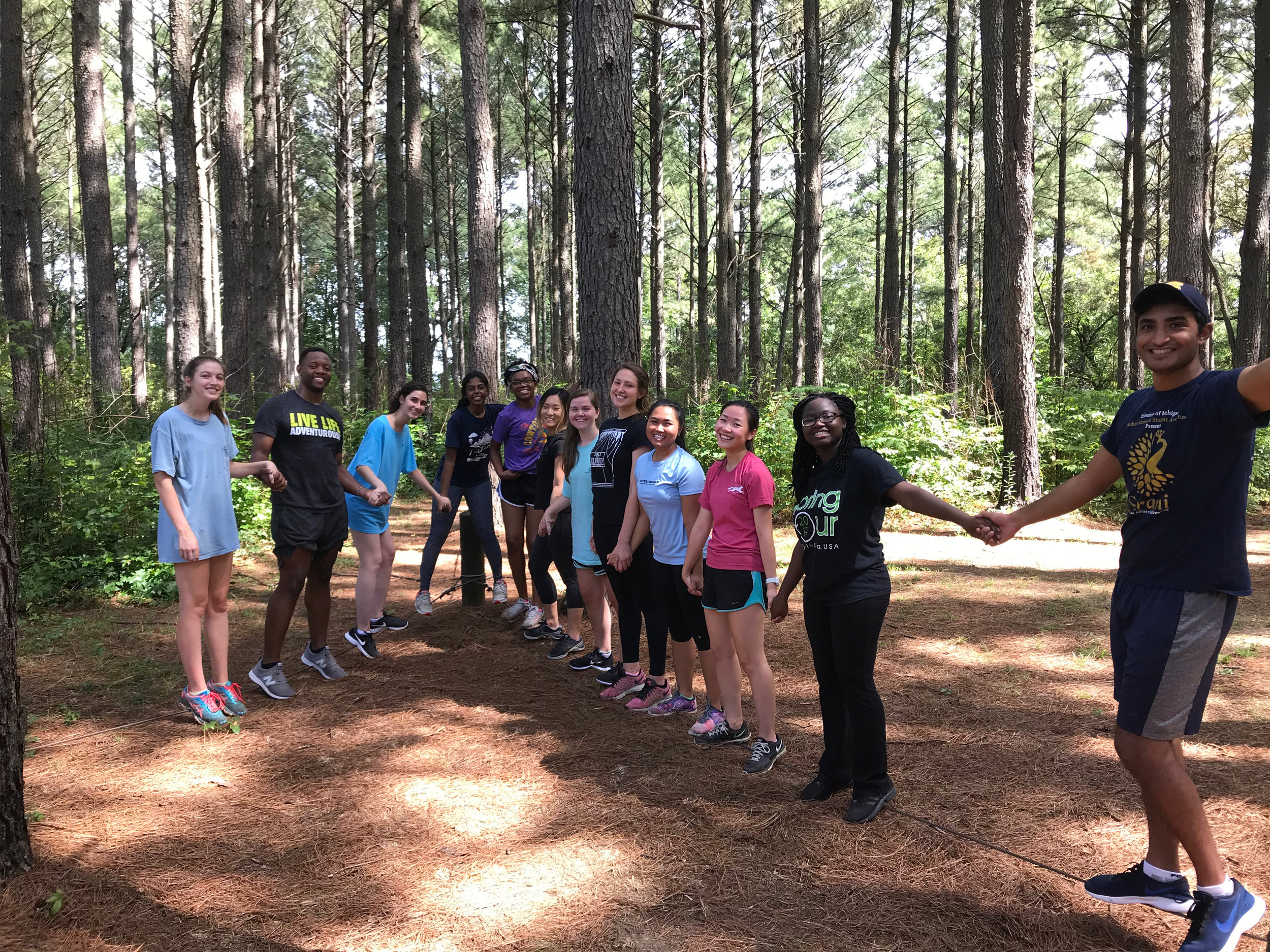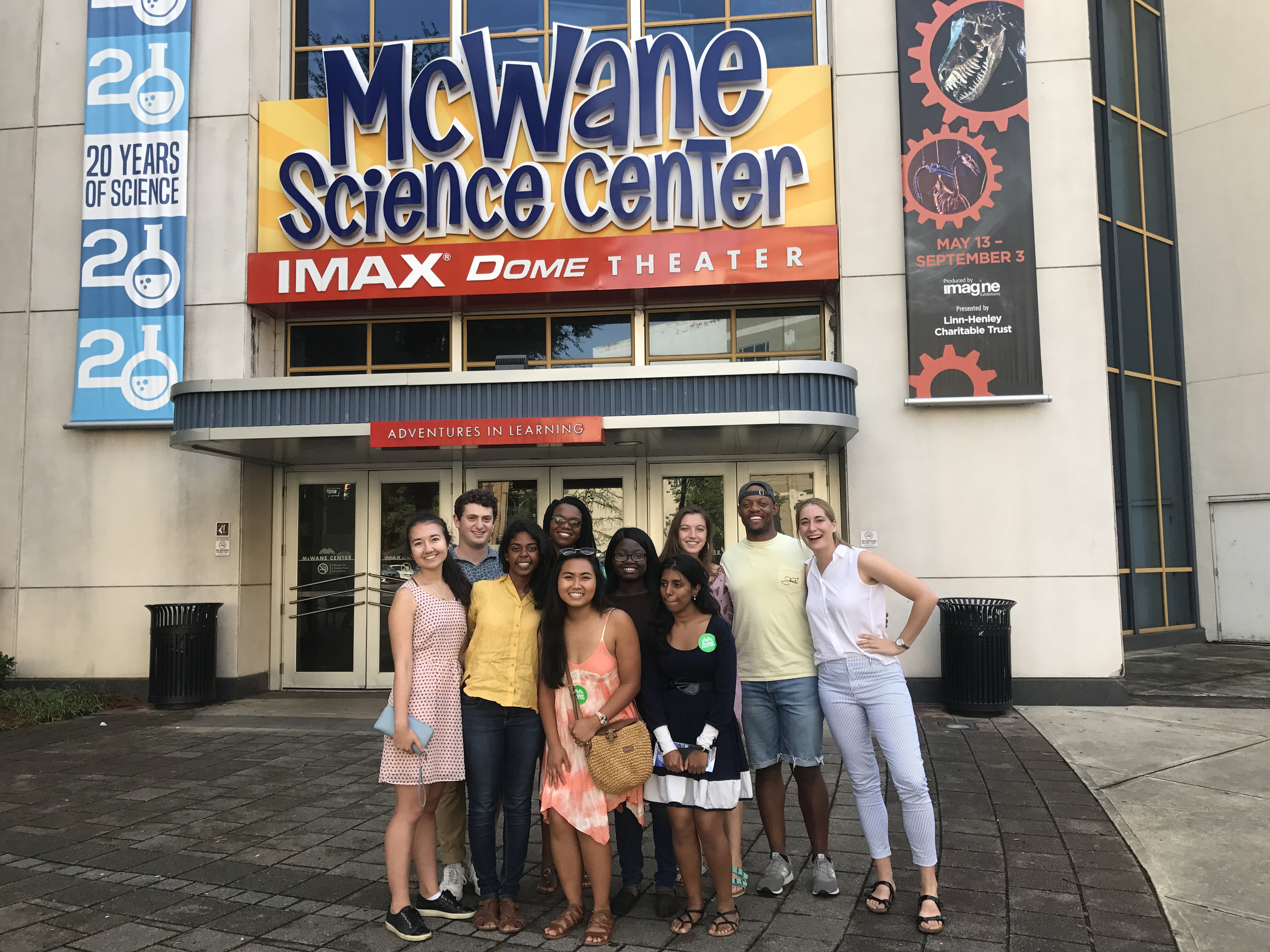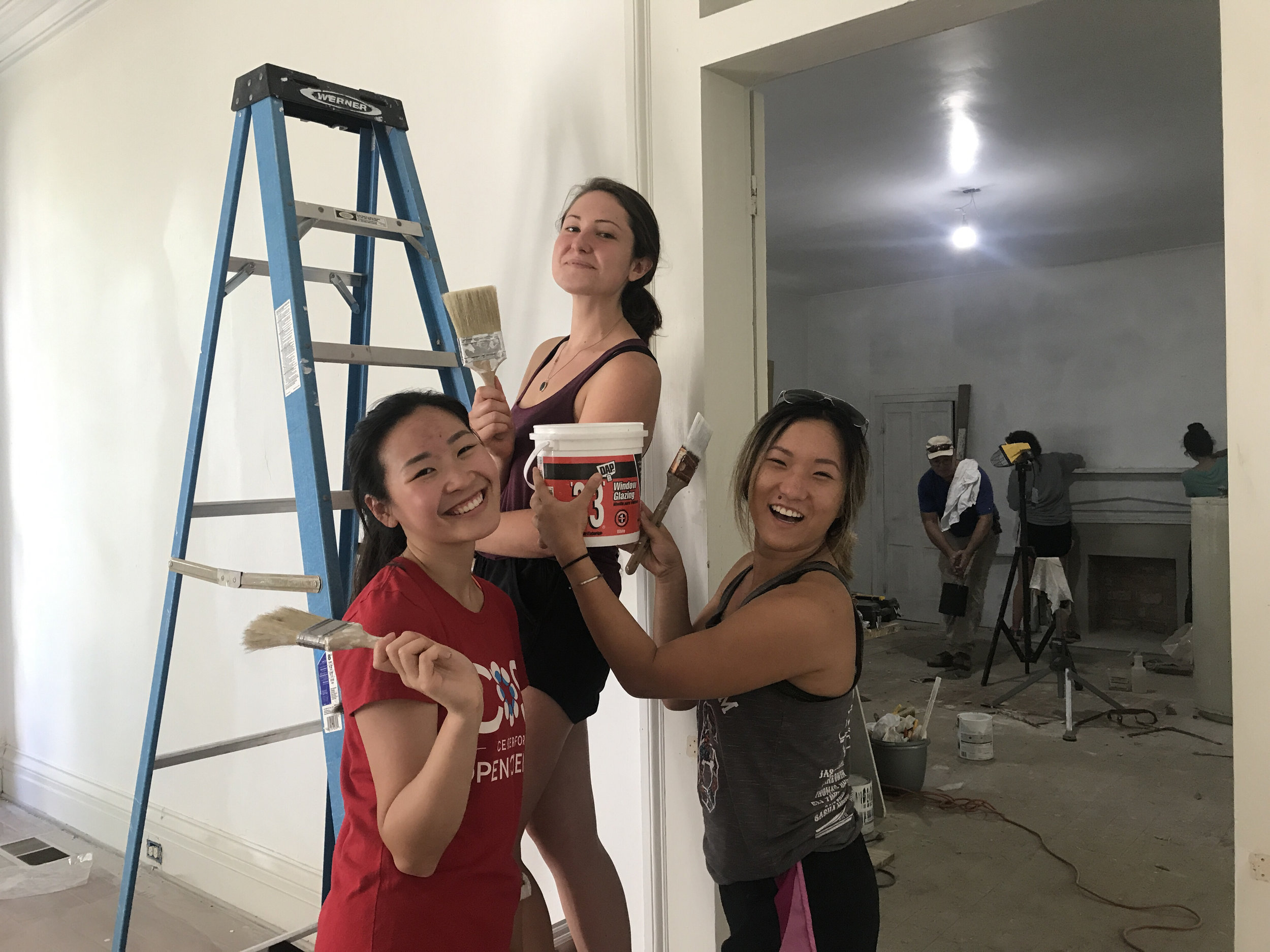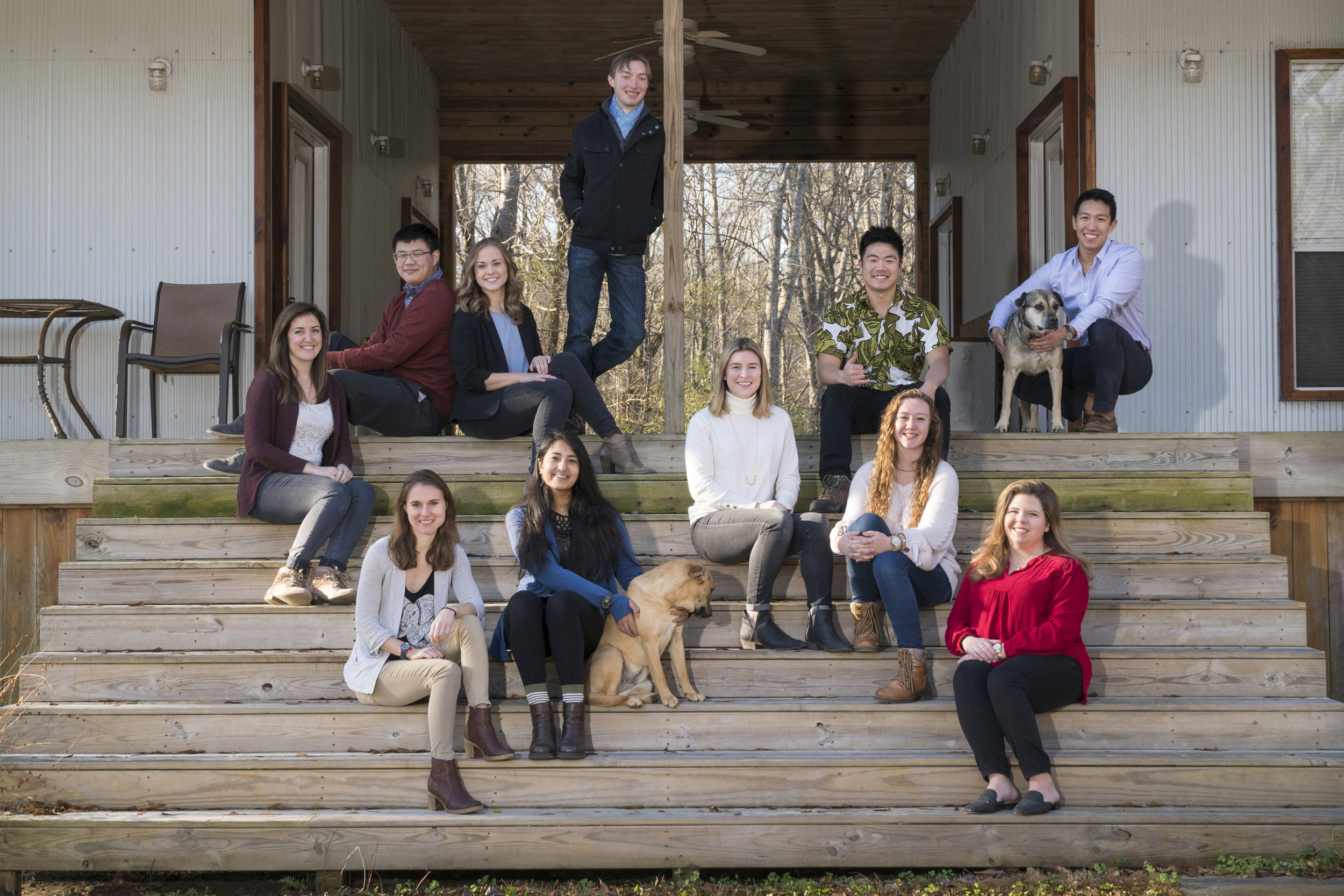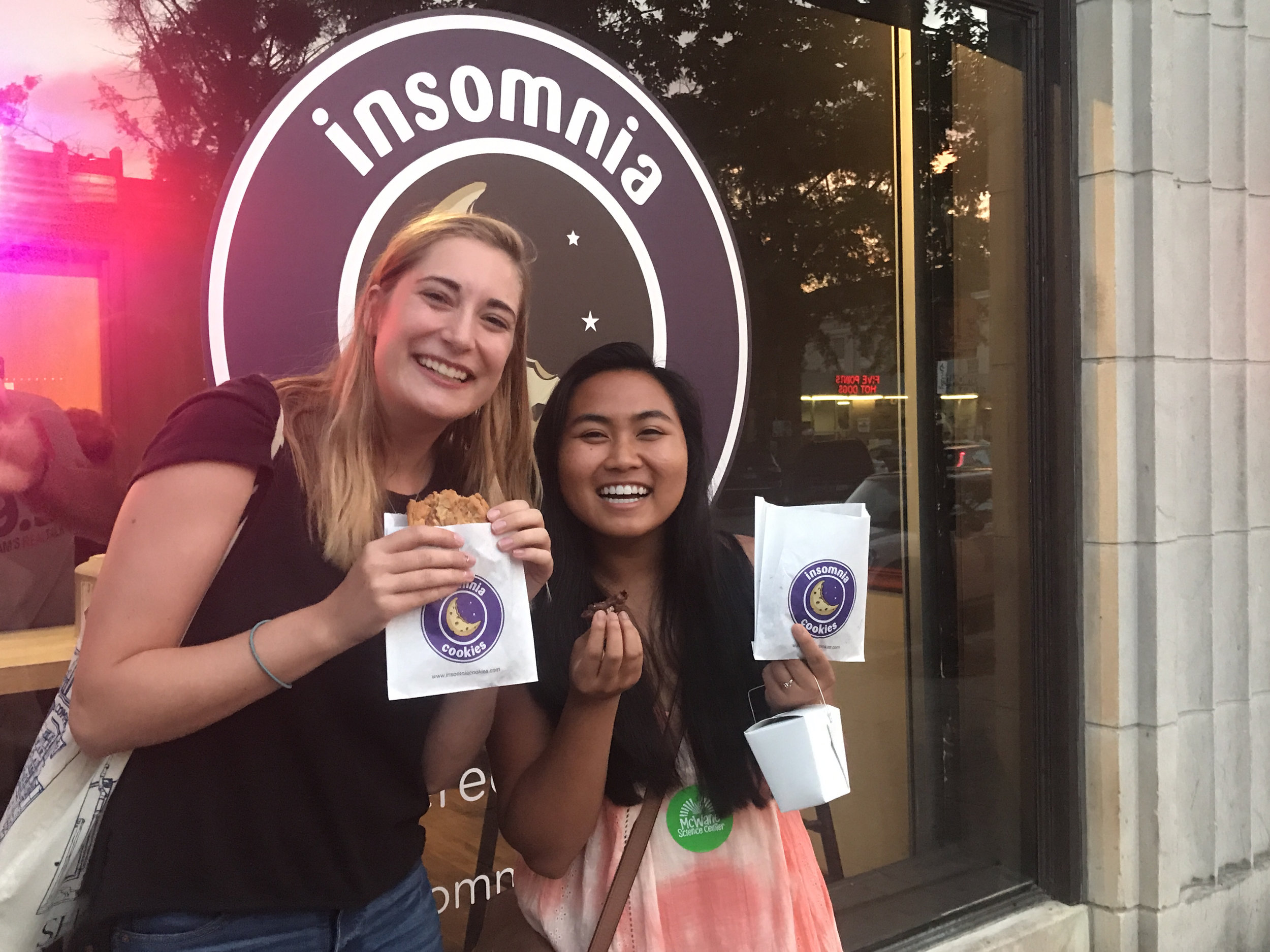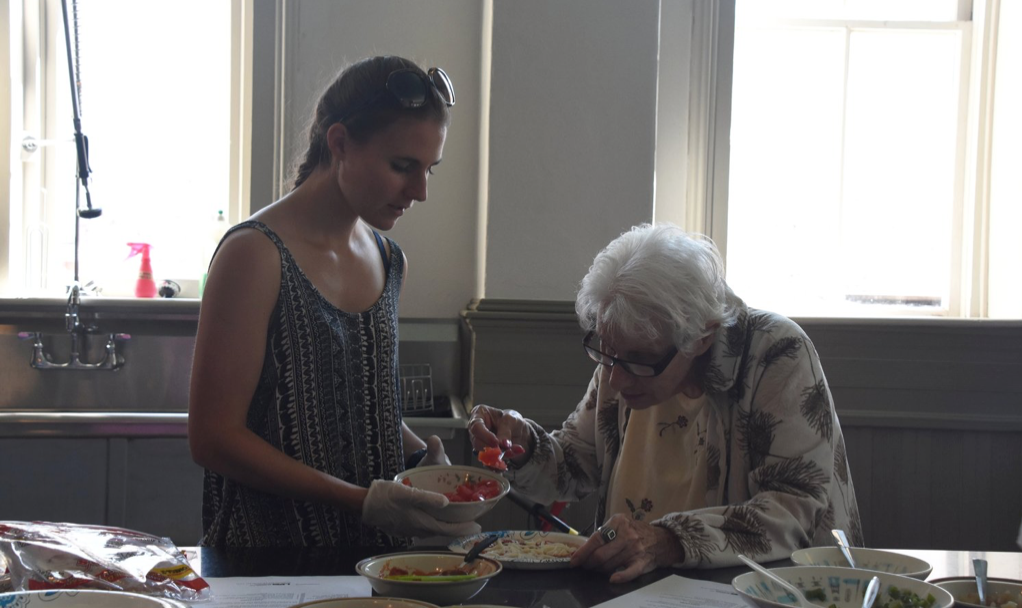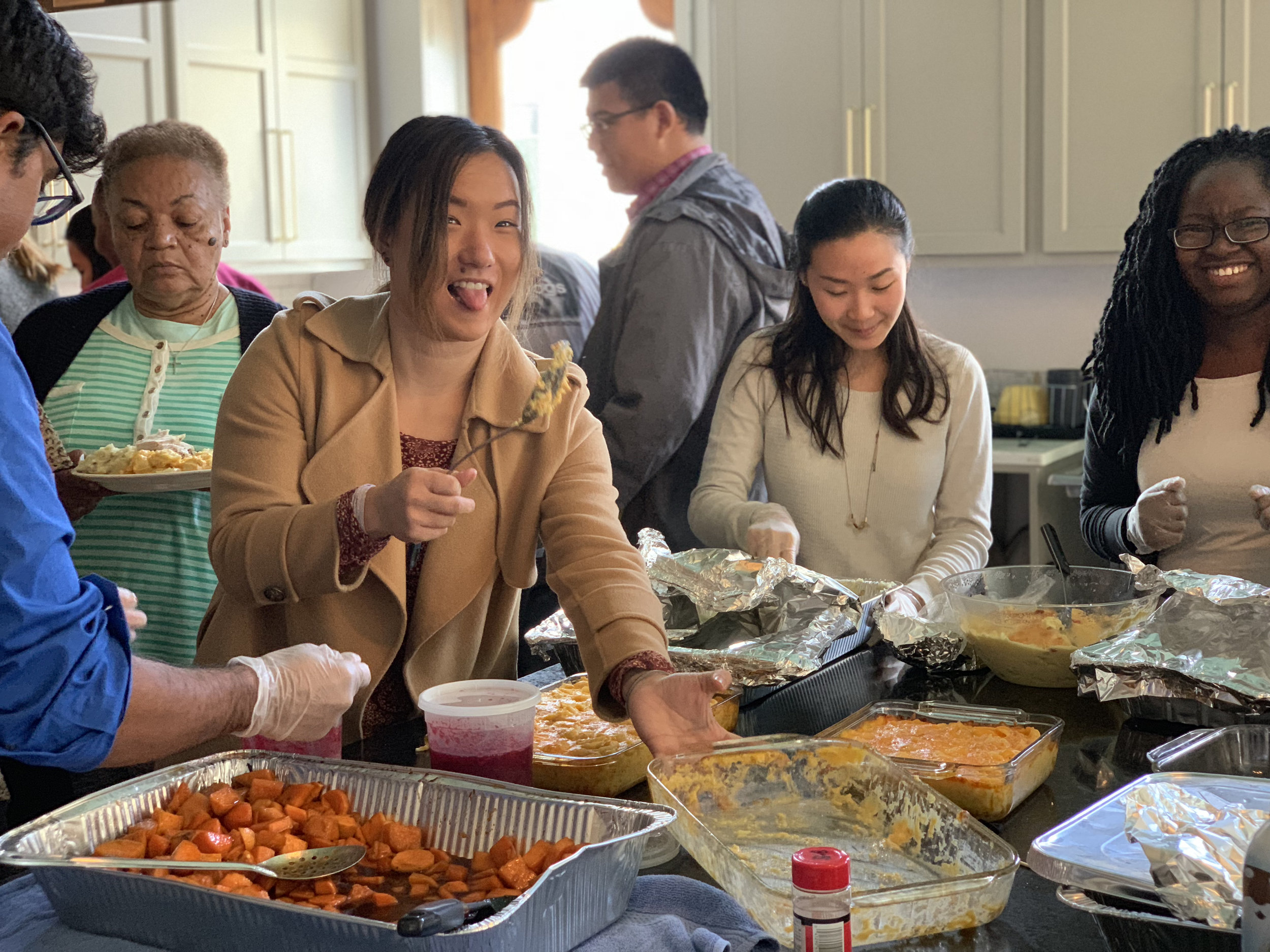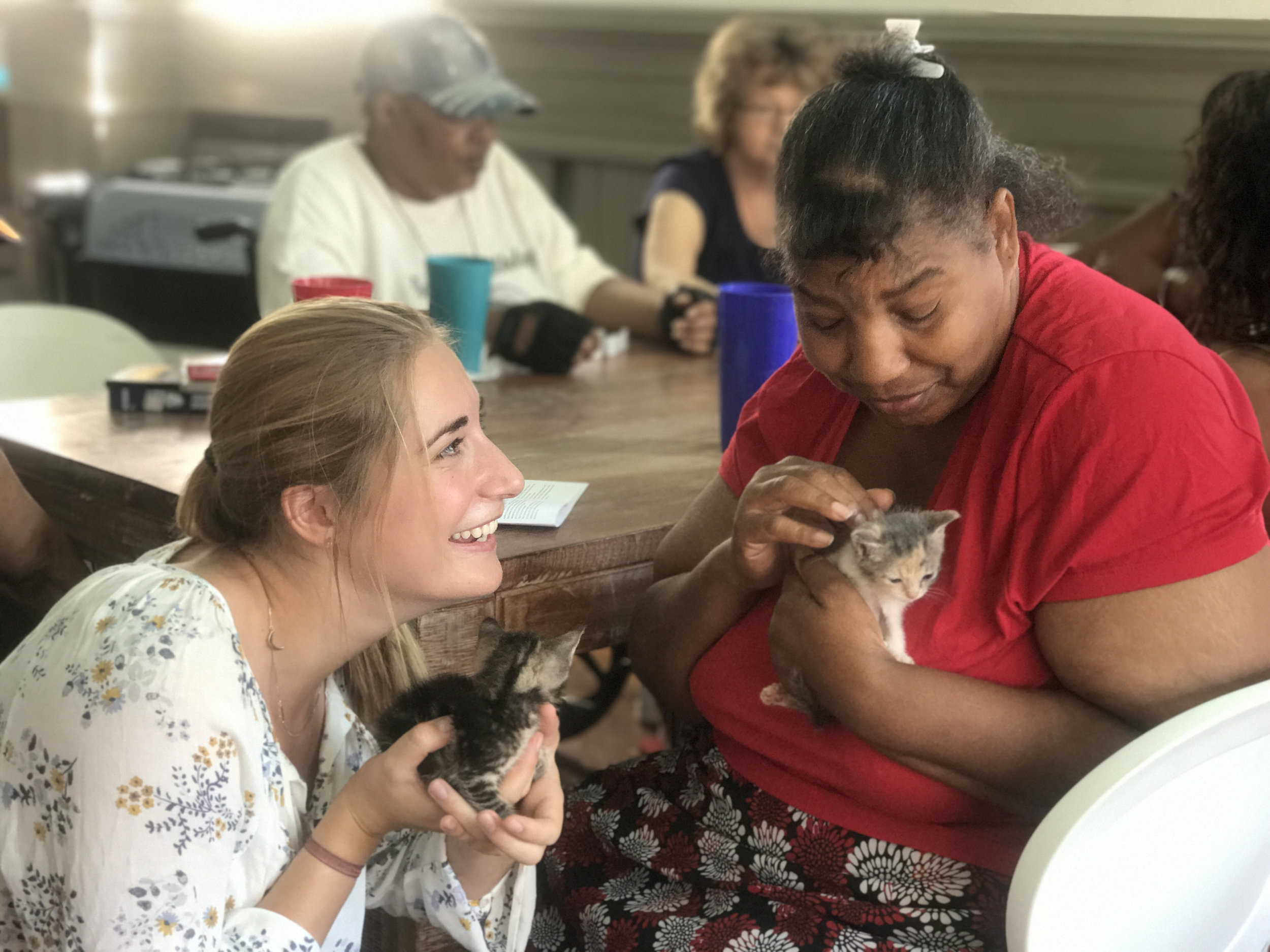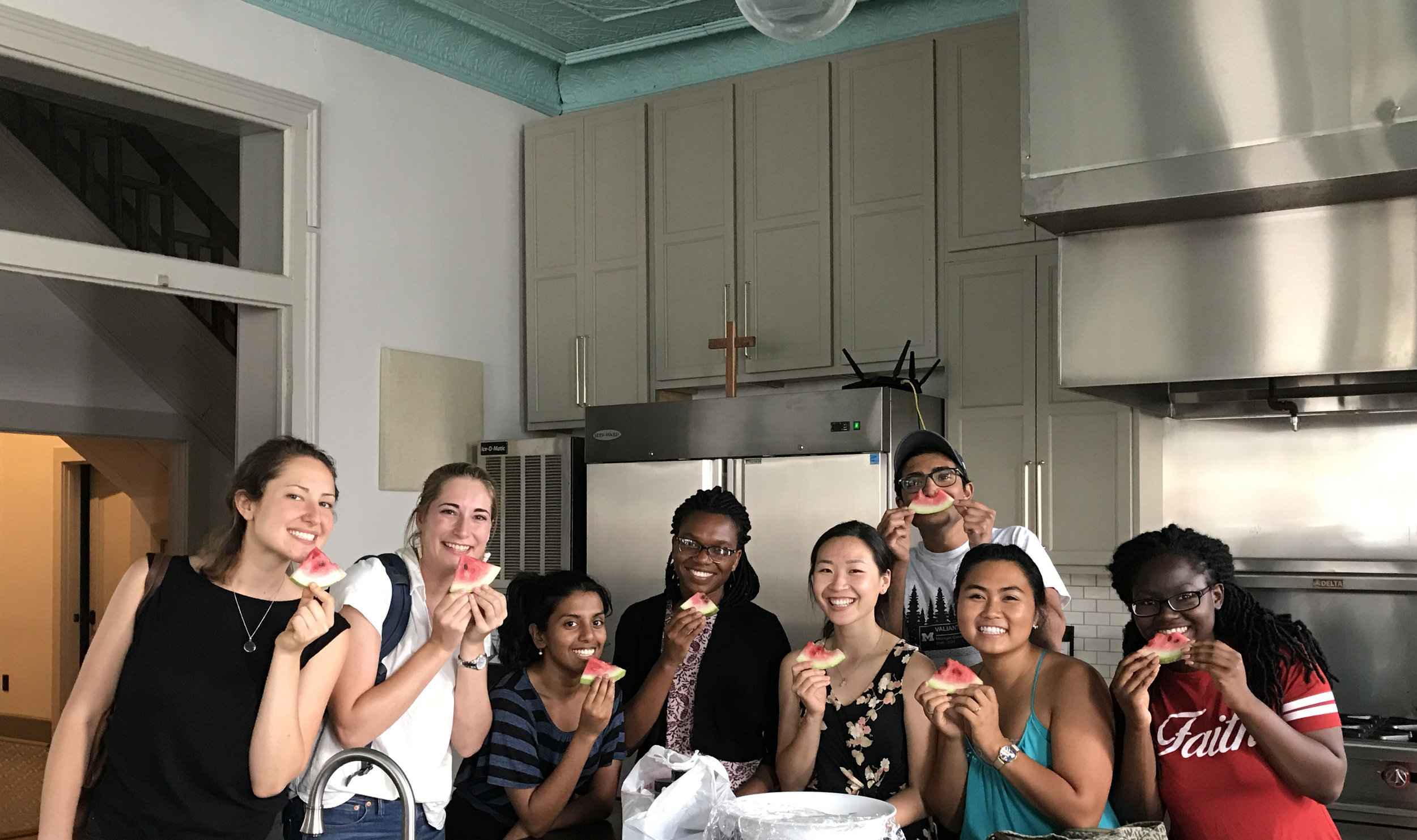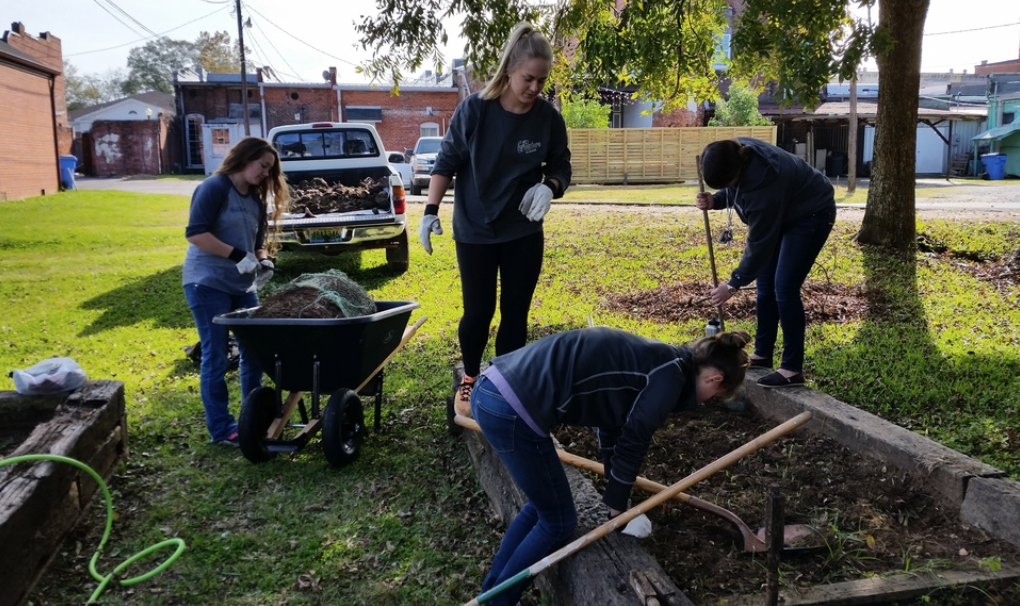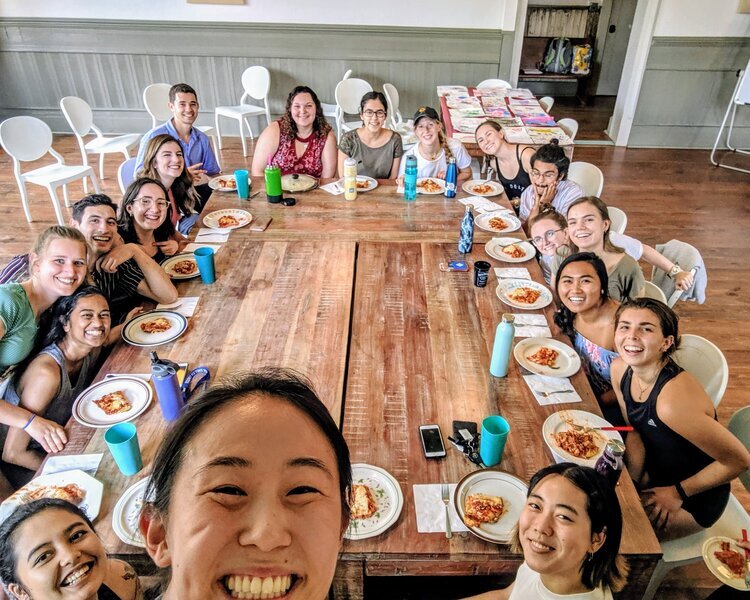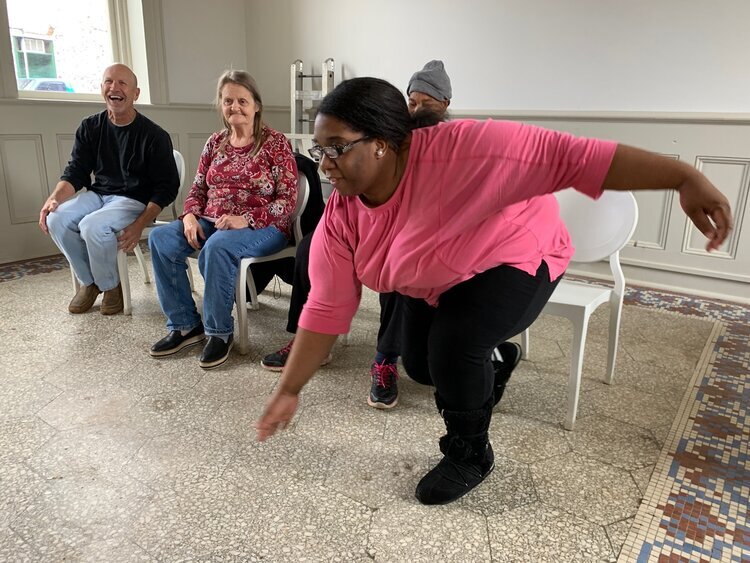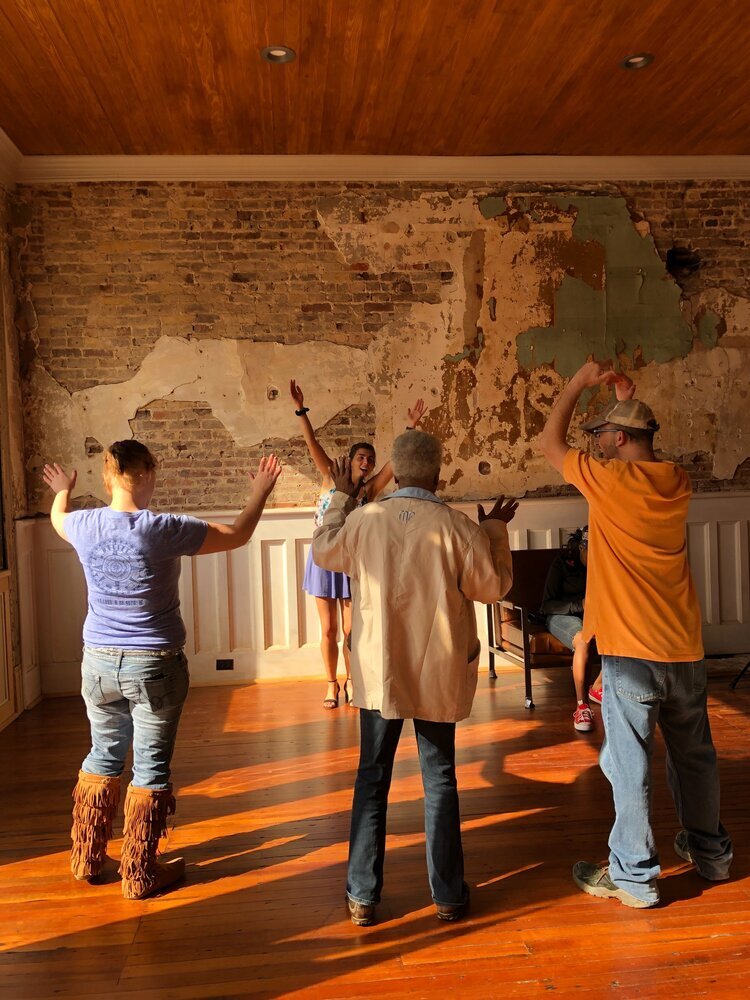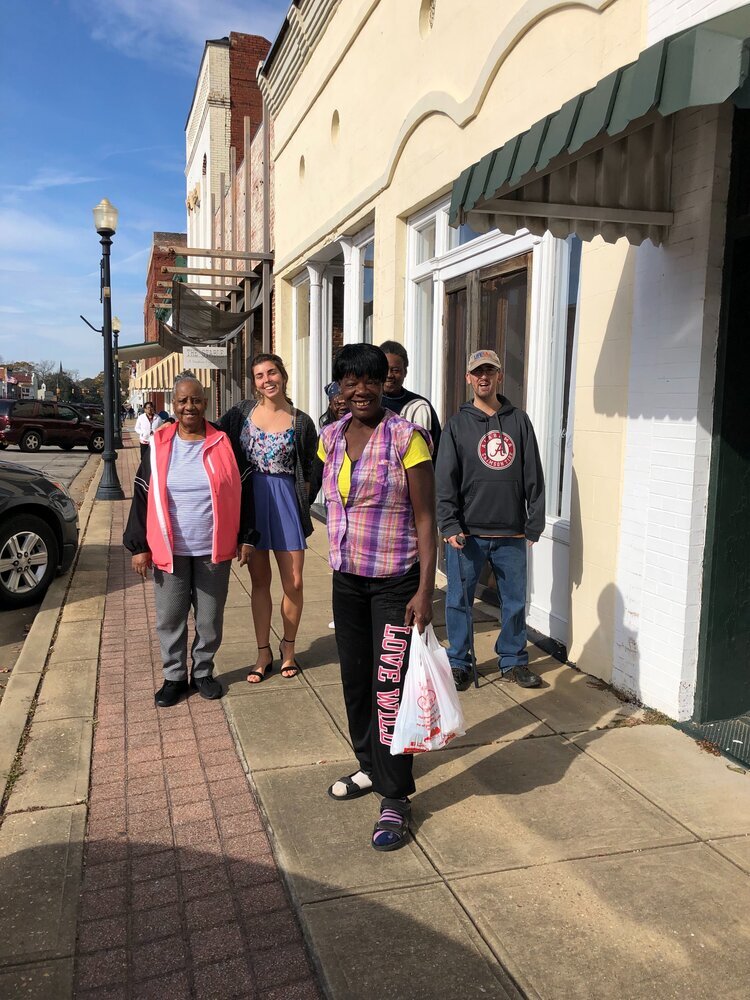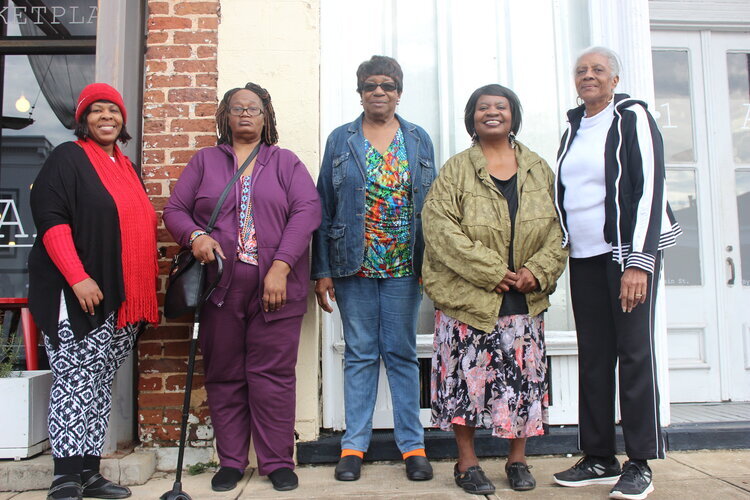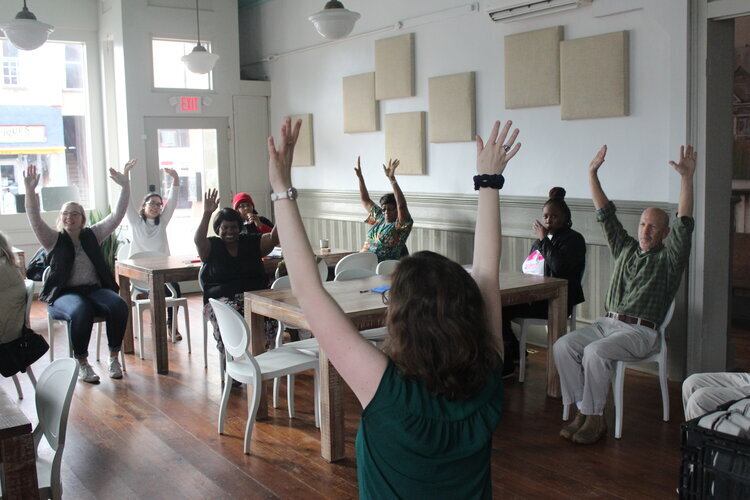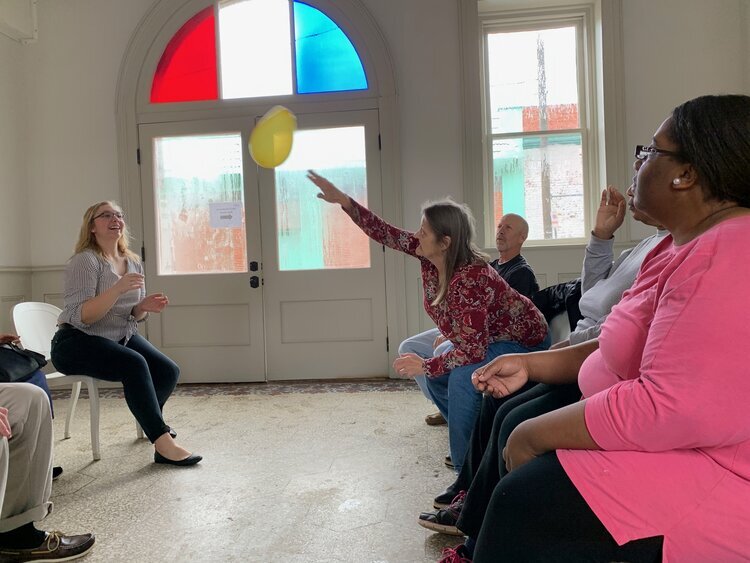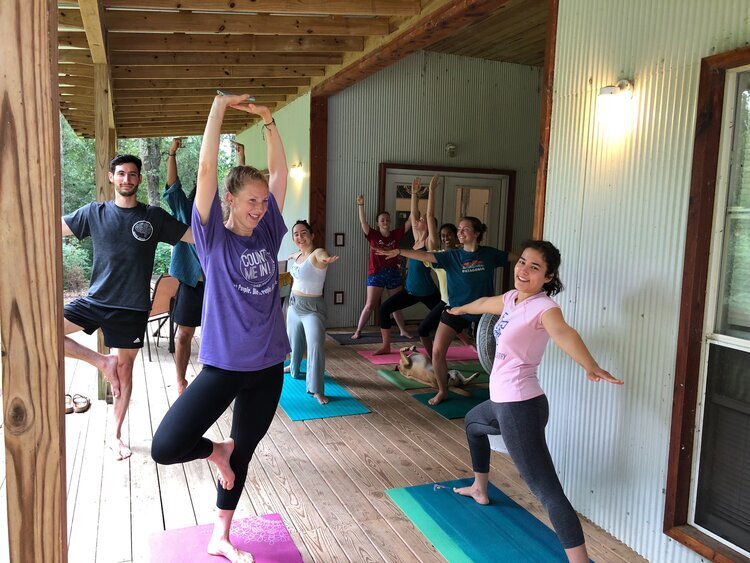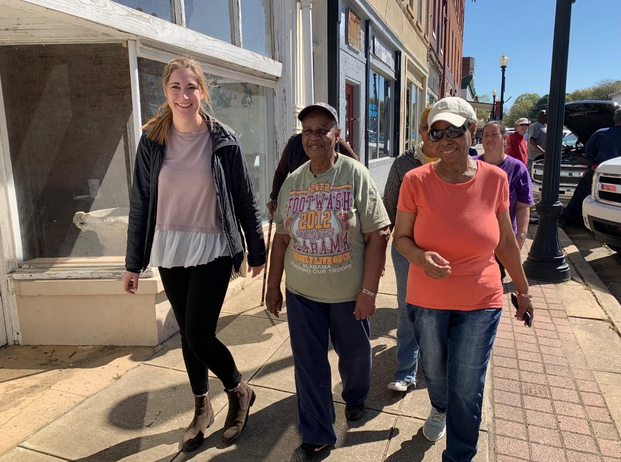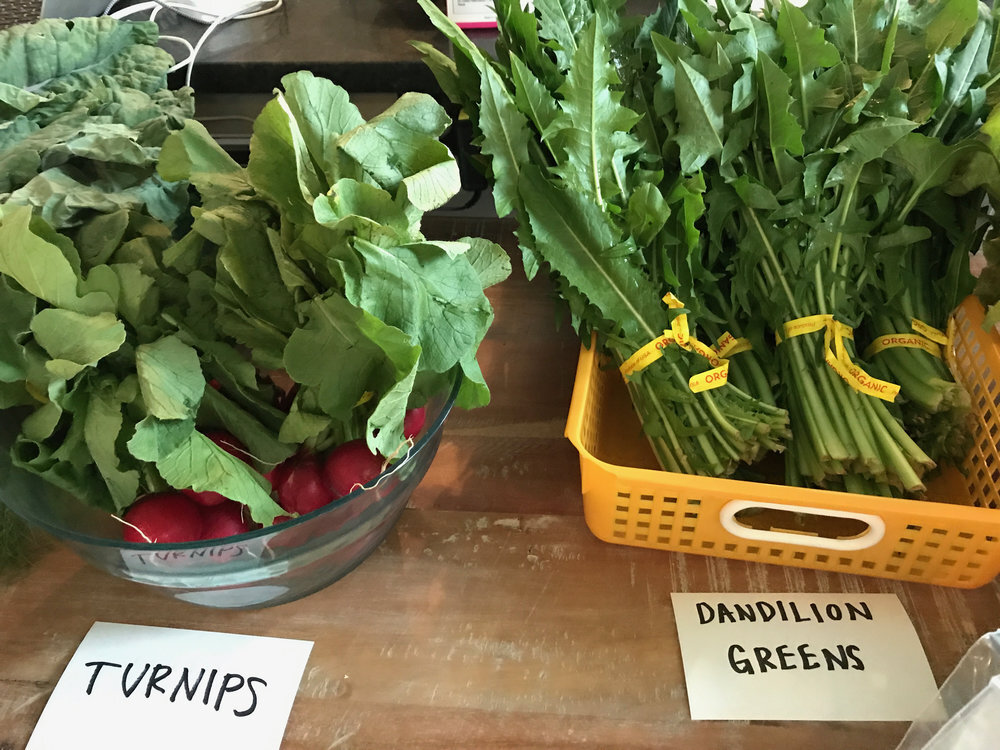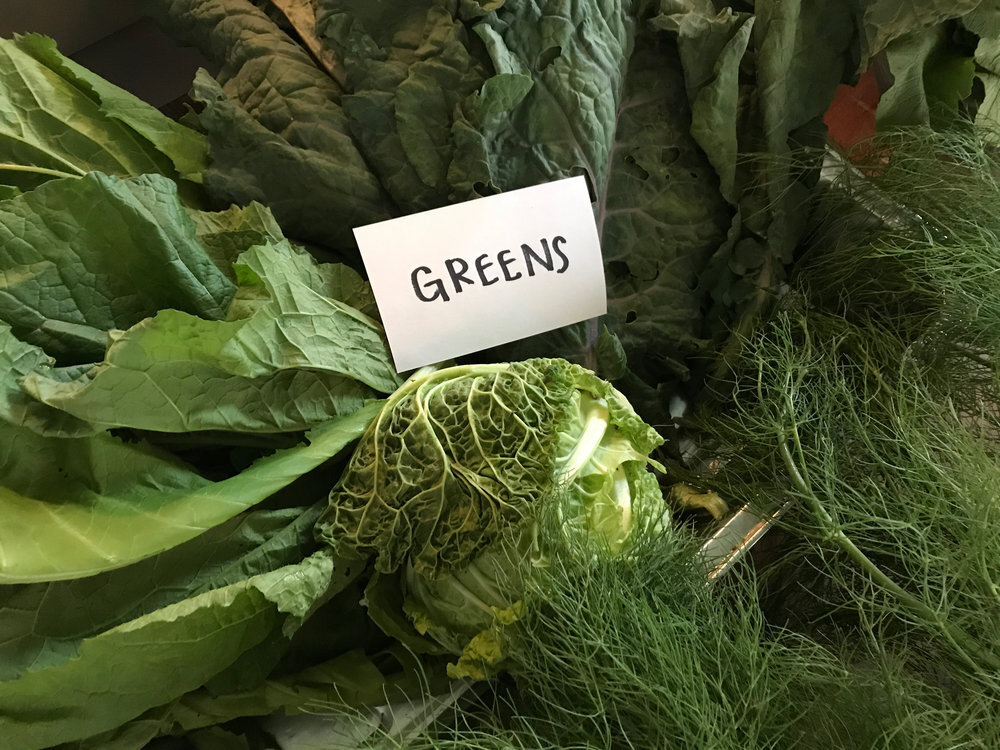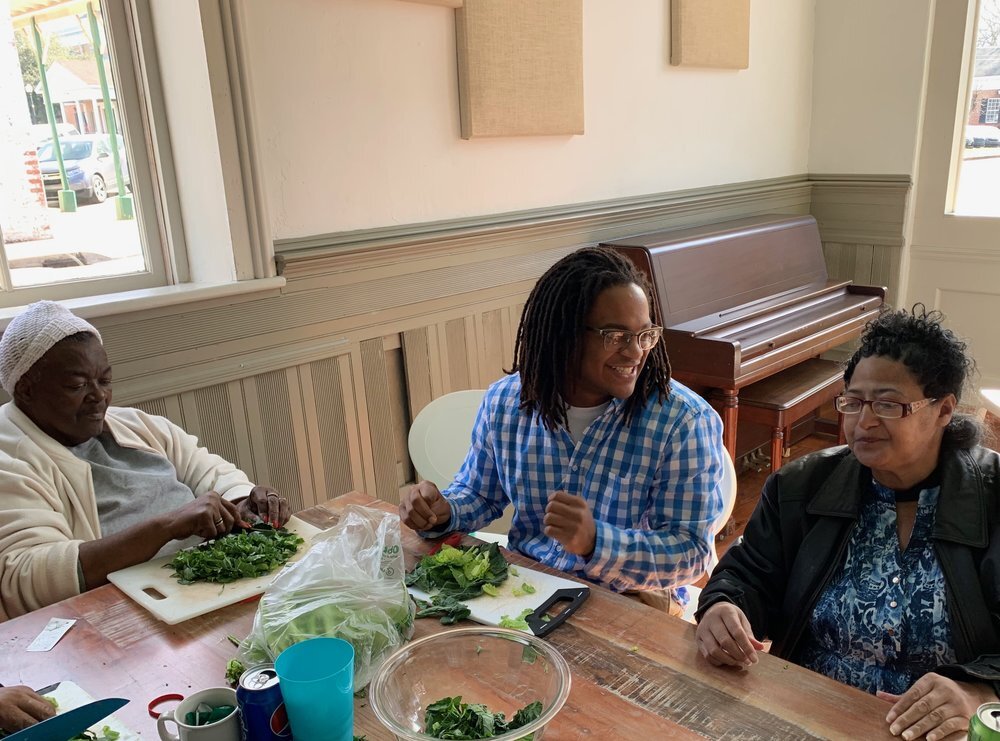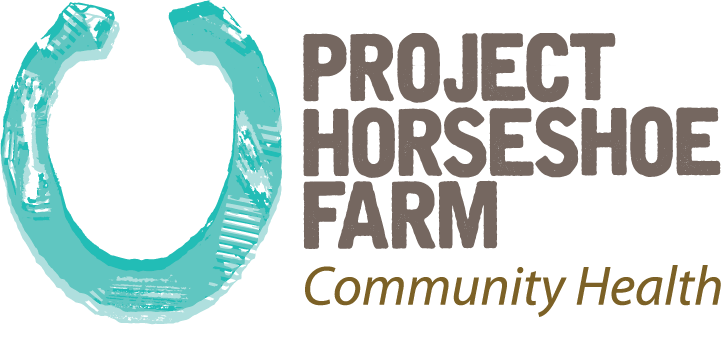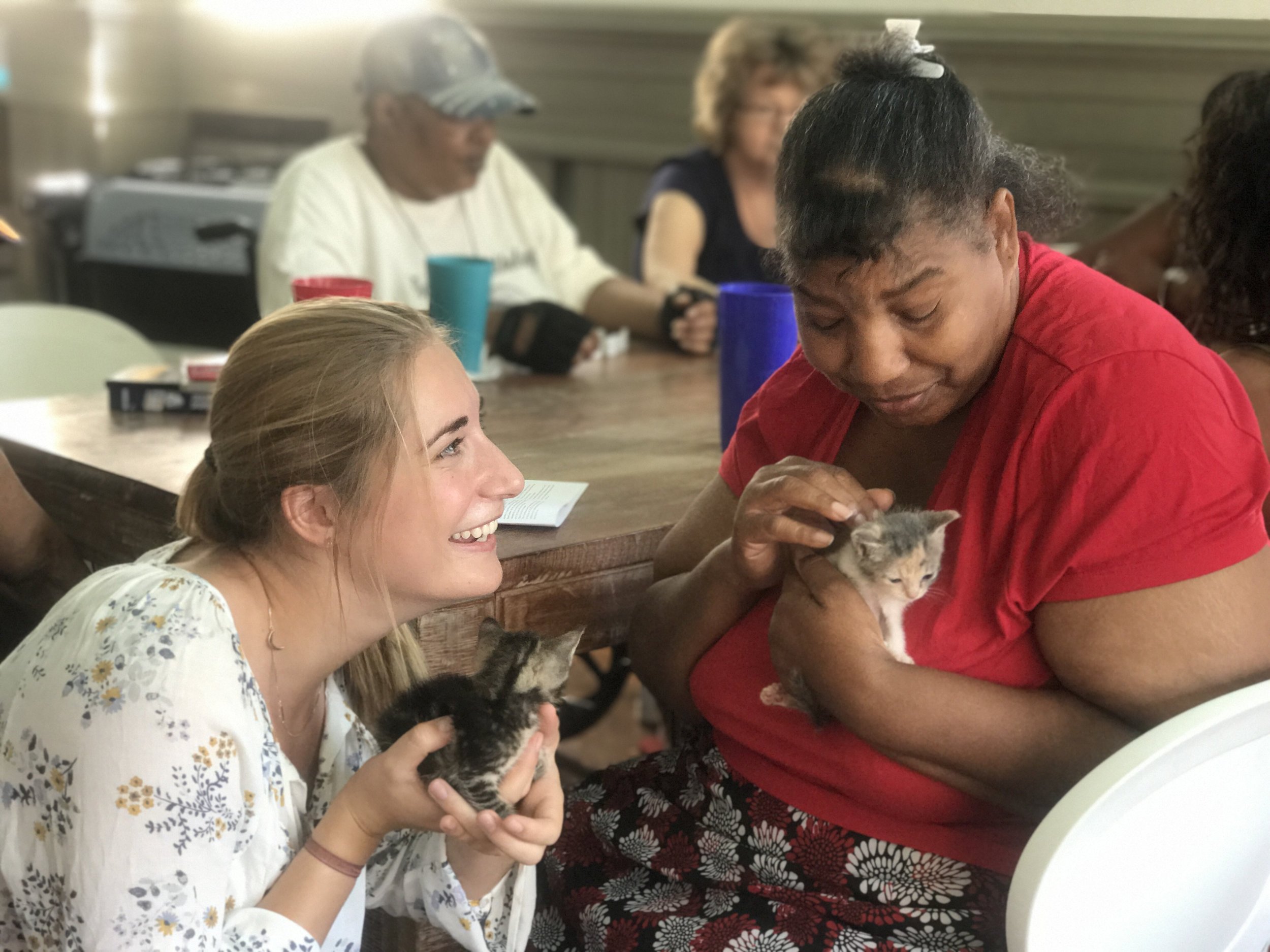Community Health Fellowship
Helping Neighbors, Strengthening Communities, and Preparing Leaders:
One third of Horseshoe Farm’s mission is to prepare community health and citizen service leaders for tomorrow’s communities. But what is a citizen service leader and how can they contribute to community health?
In nearly every community there are individuals who dedicate and stretch themselves far beyond what is required in service to their neighbors and their broader community. These individuals don’t pursue this path for pay, recognition, ease of life, or external reward. They understand that part of the deal is feeling challenged, extended, and often fatigued. They thrive, persevere, and ultimately sustain themselves by the opportunity to use their time and talents to fulfill their duty to help their neighbors and their communities, and to work with others to try to make things a little better.
Horseshoe Farm believes that there is a particular type of citizen service leadership that has a special capacity to simultaneously change lives, strengthen the social fabric that underpins nearly all successes in local communities, and improve community health in ways that cut across the differences between us that can sometimes divide us. It is formed by individuals who give of themselves in volunteer service to their vulnerable neighbors.
To add to the vital strength these efforts bring to local communities and to prepare the next generation of community health and citizen service leaders, Horseshoe Farm created a pioneering one-year educational grant supported Community Health Fellowship for top recent college graduates. Fellows live together in housing provided by Horseshoe Farm as they work together on teams with other outstanding Fellows and Interns. They volunteer in Horseshoe Farm’s service programs that provide relationship-based support to children, adults living with mental illness, seniors, and other vulnerable individuals. They get to know people, organizations, families, leaders, and others as they live and learn in one of our three wonderful partner communities. They receive ongoing teaching and mentorship through individual and team meetings, readings, and discussions to help them see context of, reflect on, and deepen their experiential learning.
Through this rigorous, intensive, and immersive year of volunteer service and learning, Fellows enhance their understanding of the intricate relational and humanistic aspects of service. They experience and learn a way of engaging, navigating, and working effectively with local communities and local institutions. They develop and hone important leadership and teamwork skills. Finally, they gain a practical appreciation of how their efforts and sacrifice contribute to the health and quality of life of our vulnerable neighbors and to a broader framework of community health. Please join us.
What is required of us now is a new era of responsibility -- a recognition on the part of every American that we have duties to ourselves, our nation and the world; duties that we do not grudgingly accept, but rather seize gladly, firm in the knowledge that there is nothing so satisfying to the spirit, so defining of our character than giving our all to a difficult task. This is the price and the promise of citizenship. President Barack Obama, First Inaugural Address.
-
Fellowship Focus Areas:
One of the strengths and unique features of the Horseshoe Farm Fellowship is the breadth of experiences in community health and the exposure in an integrated way to multiple dimensions of citizen service leadership. All Fellows participate in all aspects of the Fellowship.
Volunteer Service - Volunteer service to others forms the core of the Fellowship experience. Fellows work in teams to provide volunteer service in the following four programs to help to improve the health and quality of life of our vulnerable neighbors. You can read more about these programs by clicking on the links below.
Community Engagement - Fellows participate in and learn about Horseshoe Farm’s innovative three level approach to community engagement. This is an extremely important part of the Fellowship and of effective citizen service leadership.
Teamwork and Leadership - Fellows work closely with a team of other talented Fellows and help lead and manage programs within their volunteer service activities. Fellows also help lead and provide supervision and teaching to health profession/medical students and undergraduate students who volunteer or intern with Project Horseshoe Farm. Finally, Fellows learn about and contribute to the operations and administrative functions of their site and participate in a reading/discussion module focused on leadership and management.
Mentorship, Reflection, and other Complementing Educational Activities - Horseshoe Farm’s educational philosophy and approach emphasizes learning through experience and doing. Fellows participate in volunteer service, work with a range of individuals and organizations, participate in ongoing community engagement activities, and provide hands on contribution to Horseshoe Farm’s operational and administrative activities. They engage in and learn from all of these activities while operating in a real world setting and working with an organizational team.
Fellows’ experiences are then complemented by readings, discussions, regular team meetings, and one-on-one mentorship to help them hone their developing skills, amplify their learning, and reflect on the broader context related to their experiences. We believe that this approach of doing blended with coaching, reflection, teaching, and mentorship is one of the deepest, most effective, and most enduring forms of learning.
A Typical Day in the Life of a Fellow
Because Fellows engage in such a broad range of activities, it is easier to describe a typical Fellow week than a typical day. Please keep in mind that every year is different, and each year inevitably brings new challenges and new and unexpected circumstances. We are looking for Fellows who have the flexibility and resilience to adapt and maintain a positive mindset and can do attitude even when things do not go exactly as planned. The following provides an approximate breakdown of Fellows’ activities during the week (all of the times below are approximate and may extend longer). We are looking for Fellows who maintain a mindset of extending themselves in pursuit of our mission and going above and beyond to get done what needs to get done.
Sample Weekly Calendar - Link
16 hours/week volunteering with 8-10 “health partners” (building relationships and providing a consistent, caring, and supportive relationship (this is the foundational and most important part of the health partners program), providing home visits, attending medical appointments with health partners, helping navigate health and social services systems, health coaching (diet, exercise, etc), support to family, help with budgeting and finances, providing some local transportation, etc.). Fellows also have regularly scheduled meetings with their Site Director to discuss their health partners and to receive ongoing teaching and supervision.
6-8 hours/week volunteering with students in an elementary school teacher’s classroom (“power hours”). Fellows volunteer in pairs in the same classrooms and with the same small group of students over the course of the year so that they can build relationships with teachers and students and make progress over the course of the year.
½ day/week volunteering to help lead activities at a local community center, senior center, or center for vulnerable adults. Fellows also help participants by providing rides to and from community center on other days.
½ day/week volunteering at a local supported housing program, other housing program for vulnerable adults, or nursing home -- regular visits and support to a small group of “health partners” in these settings, help with social/recreational programming and activities, other support. (at Greensboro site, Fellows also provide weekend support one time per month to women in our enhanced independent housing program).
½ day/week volunteering at a local “second level community engagement” site (local civic, business, government, non-profit, or other organization -- past Fellows have volunteered in the Mayor’s office, at local non-profits, with local libraries, at local animal shelters, at local healthcare agencies, with local schools, at local museums, with local contractors, with local police and sheriff’s offices, at local attorney’s offices, etc.).
4-10 hours per week of program planning, operations, special projects, and administrative time (This varies week to week and varies depending on operational functions that are occurring at a particular time of the year. For example, time spent on these activities tends to increase substantially during our Fellow recruitment and selection period). Because of other responsibilities during the week, Fellows should expect that some of this planning, administrative work, or operations work will have to occur on Saturdays or in evenings.
Approximately 6 hours/week of additional and complementing educational activities, supervision, discussions, and other meetings - Monday evening discussions and movies related to readings led by Site Directors (Mondays from 4:30PM - 7PM), individual supervision and check-ins with Site Directors, morning team meetings with Site Directors, weekly team meeting and teaching with Horseshoe Farm Executive Director.
Approximately 2 hours/week of assigned readings in preparation for Monday Discussions.
Periodic weekday evening and weekend community social events, potlucks, community and civic meetings, etc. It is important to remember that community immersion is a vital part of the Fellowship experience, and that community events are an important part of getting to know and becoming a part of the community. Fellows also engage in third level community engagement by devoting time during their days and sometimes during weekends and evenings reaching out to and getting to know other local organizations, businesses, clubs, individuals throughout the community.
Approximately 5 hours/week -- PORTCH Fridays including lunch speakers and visits in the community that focus on:
People - getting to know a range of local people and leaders in the community.
Organizations - getting to know a range of local organizations in the community
Relationships - build, develop, maintain, and strengthen relationships with others in the community.
Team Building - participate in team building activities to help support our effective function as a team.
Culture/Community - learn about the local culture of the community and other aspects of the community.
History - learn about the local history of the community.
Monthly Saturday workdays, cleanups, maintenance work around Horseshoe Farm and sites, or special events or work days with partner organizations -- scheduled by Site Directors, typically 1 Saturday per month.
Fellows typically organize and attend other evening and weekend social events, gatherings, ultimate frisbee or other sports, and activities, including with other young people in their communities.
1 day per week protected time (generally Sundays) to relax, recharge, do laundry, catch up with family, etc.
Looking more broadly at the breakdown, the above comes to approximately 32 hours per week spent in direct volunteer service to others (health partners, housing/nursing home, community center, and youth programs) and the remainder of time dedicated to additional and complementing educational, leadership development, and community activities related to developing as citizen service leaders.
*Please note that though we believe that activism and political advocacy can be important means for achieving positive change, Horseshoe Farm does not engage in political advocacy or activism or take positions on political issues or other causes, and neither political advocacy nor activism is part of the Fellowship experience or the Horseshoe Farm culture. There are many excellent organizations that focus on activism and political advocacy, and if these are your interests for your gap year, we encourage you to seek out opportunities with these organizations.
-
-Gain experience in Horseshoe Farm’s multidimensional integrated approach to impacting community health and the biopsychosocial aspects of community health.
-Have opportunity for mentored relationship-focused volunteer service to seniors, adults living with mental illness, other vulnerable adults, and children.
-Hone teamwork and leadership skills through close work and collaboration with a team of other talented Fellows and Interns, and receive ongoing teaching and mentorship from top notch Site Directors.
-Work with health providers, teachers, community center and nursing home leaders, and other local service leaders, extending their capacity to provide relationship-focused care and support to those they serve.
-Learn about health systems, health policy, and Horseshoe Farm’s approach to reinforcing and strengthening health and education systems and engaging and working effectively with local communities.
-Experience with and learn about operations, strategy, management, leadership, finances, and other aspects of community-based non-profit organizations. Introduction to concepts related to starting new initiatives.
-Volunteer work with local community organizations and other opportunities to get to know your local community more broadly.
-Weekly reading and discussion series (syllabus overview) and ongoing teaching and mentorship.
*Horseshoe Farm is recognized by many top medical schools and graduate schools across the country for the strength of the Horseshoe Farm Fellowship program. Our Fellows tell us that their experience as Fellows tends to be a major focus during their interviews and Fellows consistently go on to some of the top medical, nursing, public health, health management, and education programs in the nation. A significant number of our Fellows have received the most prestigious scholarships and awards at their respective institutions.
-
Because of the generosity of donors and their desire to help and support promising young people who willingly choose to make a personal sacrifice in pursuit of a year of volunteer service and learning , we are able to offer the Fellowship without tuition or charge to Fellows.
To help Fellows partially offset educational costs related to their year of volunteer service and learning, Horseshoe Farm provides shared housing and utilities free of charge to Fellows (approximate value of $7,200 - $12,000/year, depending on location) and an educational grant/transportation reimbursement (total of $880-$1115/month**) that is intended to help Fellows partially offset other basic living costs and their significant transportation costs related to the Fellowship. Finally, we are able to provide a small relocation grant to each Fellow to help partially offset their costs of moving ($100-$300 depending on distance).
**Due to differing costs of living, the Alabama and Pomona Fellows receive receive different amounts of funding for their educational grants which partially offset basic living expenses and gas/transportation expenses related to the Fellowship and the extensive use of Fellows’ own vehicles for transportation of participants.
Alabama Fellow Educational Grant
Assistance with Living Costs: $600/ month
Assistance with Gas/Transportation Costs: $280/ month
Pomona Fellows Educational Grant
Assistance with Living Costs: $750/ month
Assistance with Gas/Transportation Costs: $365/ month
-
The Fellowship has two locations in Alabama (Greensboro and Perry County sites) and one in California (Pomona Site). You may submit applications for any or all of the 3 locations through the “Apply” link here or by using the button at the bottom of the page. If you do not have a Google Account (which is necessary to complete the application via the links), please download this word document and email the completed document in pdf format to apply@projecthsf.org.
After an initial review process of each application, qualified applicants will be contacted to schedule an initial interview with one of our current Fellows and another Horseshoe Farm representative (Board Member, past Fellow, or other). After these interviews, qualified applicants will be invited to schedule a second interview with one of our site directors followed by a final interview with our Executive Director.
The selection committee will then notify each applicant (typically within 60 days of application deadline) whether they will be offered a position in the Fellowship class. If you are offered a position in the Fellowship class, to be fair to other applicants, you will have only a couple of days to decide whether to commit to the position.
To be fully transparent, to try to set realistic and accurate expectations about the Fellowship, and to try to set everyone up for success, we ask you to carefully read and understand our “Learn More/ FAQ” and “Values: Who We Are” documents. We also invite and strongly encourage applicants to arrange a time during the application and selection process to speak with at least one of our current Fellows. Fellows are happy to openly share their experiences and to answer any questions you might have.
Any questions about the application process or fellowship can be directed to our recruitment team at apply@projecthsf.org.
Please inquire about potential openings for the Fellowship at apply@projecthsf.org
